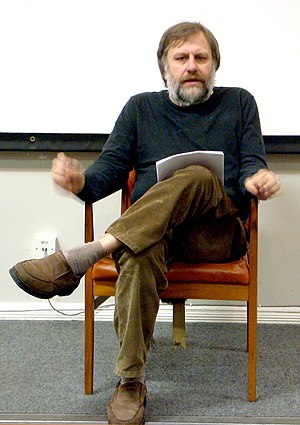Archive for June, 2010
Coalitions and representative democracy
Not being a supporter of either of the coalition parties, the current range of opportunities to accuse them of betraying their manifesto commitments are very tempting. It’s hard not to relish a few years of Nick Clegg having this video replayed constantly in the light of Tuesday’s budget VAT hike.
But taking the partisan hat off, the upsides for the quality of democracy are hard to avoid as well. I’d broadly agree with Lib-Dem blogger Mark Thompson in this ‘campaign in majoritarian, govern in coalition’ post that the experience of participating in – or watching – coalition government will bring a number of improvements to the way that political discourse is conducted in the UK. If it results in more equivocal value-based electioneering, it can only be a good thing. Read the rest of this entry »
Localocracy & Opinion Space
Looking at the Personal Democracy Forum session on ‘New Tools for Listening‘, there’s a presentation from Localocracy and Opinion Space along with a quick trot through Google Moderator (which has now been integrated into YouTube to help deal with their burgeoning comments issues there).
It’s an interesting approach that allows people to participate in local discussions if they can validate themselves against the local electoral roll (I’m pretty sure that this wouldn’t be possible under UK legislation but I’d be glad to be contradicted).
Step three of Conor White Sullivan’s presentation is an injunction to ‘Do Awesome Stuff’ which is, I think you’ll agree, pretty annoying.
It’s worth sitting through to get to Ken Goldberg though. Ken looks at ways to mine huge amounts of commentary without being hampered either by the binary nature (the like / unlike button) or the linearity of 4 squillion people responding to something that Mark Zuckerberg or Clay Shirky have to say. Read the rest of this entry »
Lists and lessons
Mark Pack has a very good post up on Lib-Dem Voice – advice for budding politicians: ‘30 things every would-be politician should do this summer‘ (he was inspired by a similar post for aspiring journalists elsewhere).

I really don't know if Niccolò would endorse this advice...
Thirty is a big number – too big for me. But I’ve got a few observations that I’ve been working on that I’d like to offer – in beta – that are intended to help people who are already politicians adapt to the way that interactivity has changed the way that public life is conducted.
There are new possibilities, pitfalls and expectations that need to be met. Here are my ten (draft) ground rules for interactive public representation.
Some of them involve a fundamental rethinking of the standard advice that has been offered to young politicians through the ages:
The mother of invention?
Necessity, that is. It’s Budget Day and the cuts are in the post. My incredible predictive powers tell me that government spending may be under a bit of pressure shortly.
 If you’re not a regular over at William Heath’s Ideal Government blog, this post is a good introduction to his general themes. In his overview of his preoccupations, this one stands out:
If you’re not a regular over at William Heath’s Ideal Government blog, this post is a good introduction to his general themes. In his overview of his preoccupations, this one stands out:
- We haven’t cheap viagra in uk yet seriously started on co-creation or participative public services where the systems delivered are formally designed successfully to meet a real need, and created, measured and improved with active input from those it’s intended to help
The possibilities (and often, the idealism) of open-source advocacy couched in these terms may offer us a clue to where the value of participation may really be acknowledged in the short term. At any point in the day, the most enraged person in the UK is probably the
one who has had to deal with the sublime idiocy of HMG IT procurement most recently.
As a microcosm of what’s wrong with our democracy, there can be few better examples. It’s substantially driven by insidious pressure groups (suppliers) who have captured departements and are capable of cranking up demand for what they are selling. As my friend Dominic Campbell put it recently, it’s time people start getting fired for buying IBM.
Politicians are particularly exposed here. The level of responsibility that they bear for expensive IT failures or the purchase of White Elephants is roughly at an inverse proportion to their ability to make those decisions. IT procurement is a complex and (deliberately?) mystifying process. Civil servants can often get away with huge mistakes and acts of carelessness that would be difficult to imagine in the Ministry of Defence the NHS.
And while some of us have huge reservations about the potential of citizens to get involved directly shaping schools or local authorities, IT procurment – with the existance of a large, well-networked open-source community (and a bunch of clever FOI-savvy geeks who really hate IT procurement) – may well provide the textbook example of how participative design can result in much better outcomes, better strategy, more bureaucratic accountability and tons of cost-savings.
We’ll see. (Have a look at this Government IT spend infographic that William points to by the way if you want to see how much cash is at stake here).
The value of a free press
Two stories – both from Roy Greenslade in recent days – that give cause to
ponder the responsibility that the media bear.
The first one is the old chestnut about the big lie splashed over the early pages followed by the retraction hidden under the Darts results.
Given the fuss earlier this year canadian discount viagra online around academics in East Anglia and the way they were making their data available, it’s quite astonishing that the deliberately misleading way that journalists handle the same issue isn’t a bigger issue.
The second one – surely one that merits a great deal more coverage than it got – covers the moves by Icelandic authorities to acknowledge the upsides of strong guarantees and support for press freedom. These guarantees are being offered as a direct response to the perceived failure of journalists to challenge the political consensus prior to that nation’s bankruptcy last year.
The reification of the 2010 election result
So what mandate does the new government have? K-punk (in a wider, very good post) quotes Melanie Phillips saying that “no-one voted for a hung parliament.”
Before the election, there was a persistent rumbling around Gordon Brown’s legitimacy as PM (he didn’t win a general election) that seems strangely lacking around David Cameron – arguably less legitimate than Brown by the same arguments.
All of this demonstrates the dangers inherent in the way that the UK’s constitutional arrangements are reified into … well … a constitution. As the press coverage in the days following the election confirmed, our constitution appears to be whatever newspaper editors think that they would like it to be.
Dealing with this, K-Punk quotes extensively from an article by the Slovenian Marxist writer, Slavoj Žižek in which a similarly reified concept – the market – is debunked:
“Each individual perceives market as an objective system confronting him, although there is no objective market but just the interaction of the multitude of individuals – so that, although each individual knows very well that there is no objective market, just the interaction of individuals, the specter of ‘objective’ market is this same individual’s fact-of-experience, determining his beliefs and
acts. Not only market, but our entire social life is determined by such reified mechanisms……”
Continuing….
“Prosopopoeia is usually perceived as a mystification to which naïve consciousness is prone, i.e., as something to be demystified…. Dupuy recalls how sociologists interpret electoral results: for example, when the government retains its majority, but barely does so, the result is read as ‘the voters prolonged their trust into the government, but with a warning that it should do its work better’, as if the electoral result was the outcome of the decision of a single meta-Subject (voters) who wanted to deliver a ‘message’ to those in power.”
This helps us to look at the 2010 election afresh and determine what we actually know about it.
We know that it returned 650 MPs, all of whom received the largest number of votes in their constituencies (though many failed to receive a majority).
We know that every vote that those MPs received was cast for slightly different reasons and with slightly different levels of conviction. Many voters hadn’t made up their minds until they lowered their pencil onto the ballot paper. The day prior to the election, ITV’s polling told them that 38 per cent of the voters said it was “quite possible” they would change their mind before voting. Other polls at over 2.5 million voters as ‘undecided’ at the same point. If we had an electoral system that allowed people to divide their vote up in some way, we may have got a very different result indeed.
We know that many votes were cast ‘tactically’ – not for a candidate but against them. We also know (and I can’t remember where I read this*) that a lot of ‘tactical’ votes were cast stupidly – people either believed in ropey statistics or just didn’t research it properly and ended up voting for the third-strongest party on the ballot in a quest to stop the bookies favourite.
We know female viagra no prescription that every MP will have slightly different levels of allegiance to their party leader. I suspect that Charles Clarke or Frank Field would be fairly relaxed about having David Cameron as a PM if the alternative were Gordon Brown. On a much larger and profounder scale, we know that many people who voted Lib-Dem may have changed their vote had they known for certain that the Lib-Dems would go into coalition with the Tories. We just don’t know how many.
And so on. The reified election results mask a much more complex set of factors in which preferences were weighted, outcomes gamed and errors were compounded.
The only thing we know for certain is that those MPs that were returned got more votes than their strongest rivals and that is the only legitimacy that the whole election campaign bestows. Strangely – and sadly – the bizarre way that the British discuss their constitutional settlement consistently serves to mask this fact.
It’s a shame, because it’s the most attractive and defensible aspect of our constitutional settlement such as it is. It makes the case for a greater focus upon individual elected representatives and candidates and for a greater measure of independence for them once they’re elected.
*Tim Harford’s More or Less podcast during the election highlighted the way that parties misrepresented previous electoral statistics to dupe tactical voters into making the wrong choice.
Social capital and genocide
Once again, Stumbling and Mumbling relays a potentially huge insight here, as part of a wider post on how pogroms of various kinds can leave a lasting mark upon the place that they happened in:
“When we compare the poorest with generic viagra canadian the richest nations, it is hard to conclude that social capital can produce less than about 90 percent of income in wealthy societies like those of the United States or Northwestern Europe.”
Those of us that think that the solving of very local problems (the lack of neighbourhood networks, recognisable legitimate and effective forms of governance, neighbourhood infrastructure, etc) have always nodded vaguely towards the concept of social capital, urging
people we talk to to find out a bit more about it. But Chris’ emphasis on the damage that is done when the middle class is decimated is one that I think raises questions about how far economic centralisation results in the development of local social capital being relegated as a priority.
Is it the case that a huge leap in national productivity and prosperity could be created if we could find a way of persuading the middle classes to live and work in the towns that they grew up in?
Swedenise us!
I was very sad to hear – via Slugger – of the passing of ‘Horseman’ – one of the better (anonymous) bloggers that I have in my RSS feed.
 Being busy, I missed his last posting on his Ulster’s Doomed! blog – a terrifically good one at that.
Being busy, I missed his last posting on his Ulster’s Doomed! blog – a terrifically good one at that.
Writing about our image of politicians , Horseman points to one country that stands out – Sweden.
, Horseman points to one country that stands out – Sweden.
“In Sweden 43.8% of people have a ‘rather favourable’ opinion of their politicians, compared with an EU average of 12.4%. And only 18.4% of Swedes have viagra aus usa a ‘rather unfavourable’ opinion, against the EU average of 55.4%.
Swedes are not foolish people, and are no more likely to be fooled by their politicians than anyone else, so what these results show is that Swedish politicians are simply better than any others. If their voters have a positive opinion of them it must be because they are more honest, more diligent, more representative and more efficient than any others. Read the rest of this entry »
Moonbattery
George Monbiot is here writing about the Tea Party movement in the US. He argues that the European left could learn a thing or two from the US right.
It’s an odd article. viagra super active It contains this sentence….
“They have been promoted by Fox News – owned
by that champion of the underdog Rupert Murdoch – and lavishly funded by other billionaires.”
… yet if you were to delete that sentence and then read the rest of the article, there’s no evidence that he understands that the Tea Party movement have been…
“…promoted by Fox News – owned by that champion of the underdog Rupert Murdoch – and lavishly funded by other billionaires.”
Is the milk out of the bottle?
Apologies for the very light posting here. Normal service will be resumed shortly – hopefully.
In the meantime, can I direct you over to viagra best online store canada this post over at Left Foot Forward – well worth a read:
“The election results show a total fragmentation of the political landscape. They produced, what we might call, a horrific Coalition Sudoku. There are at least four coalition options, involving more than four parties. But none of these options will be an easy representation of the will of the
electorate, nor a simple ticket for stable government in times of financial crisis and populist revolt.”



